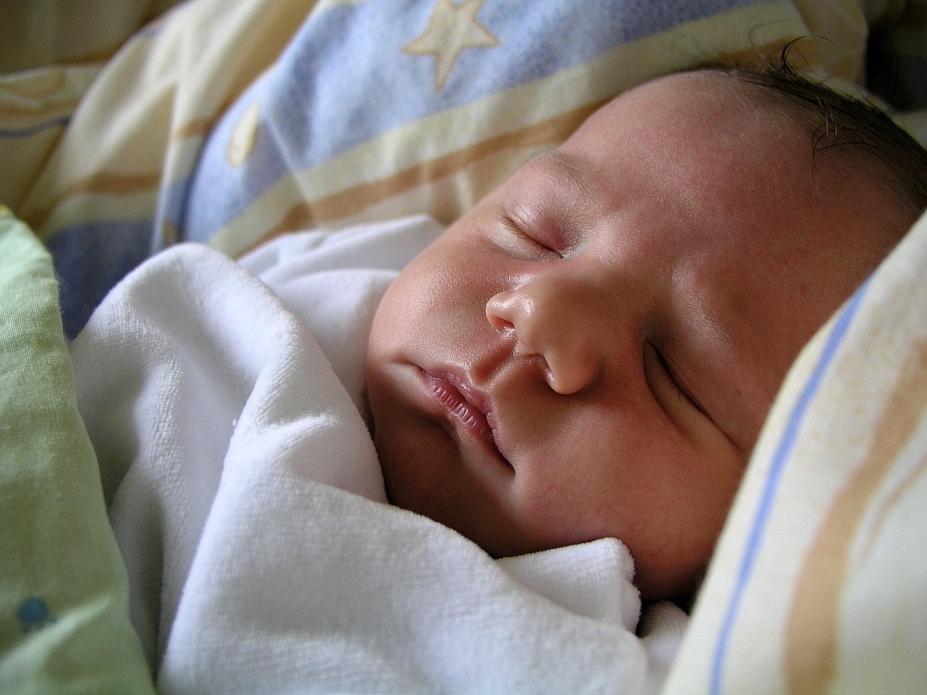Americans Say IVF is Not the Answer to Infertility - LifeNews.com
In IVF clinics all across America, there are more than 1,600,000 frozen babies in storage right now. Many of them are discarded or donated to be the subjects of experiments. While some couples adopt and implant the embryos, a process sometimes called snowflake adoption, that still only accounts for one small fraction of the babies still in freezers, many of whom will never get the chance to grow up.
Running on a pro-family platform, President Trump signed an executive order back in February to “ensure reliable access to IVF treatment, including by easing unnecessary statutory or regulatory burdens to make IVF treatment drastically more affordable.” He claimed that he wanted to make IVF access more affordable so that “many hopeful couples [dreaming] of starting a family” but having infertility issues could conceive.
SUPPORT LIFENEWS! If you want to help fight abortion, please donate to LifeNews.com!
“My Administration recognizes the importance of family formation, and as a Nation, our public policy must make it easier for loving and longing mothers and fathers to have children,” Trump’s executive order said.
However, in a recent poll, more than half of Americans now say they would prefer to solve infertility issues directly rather than resorting to IVF to start a family.
Mary Szoch, director of the Center for Human Dignity at Family Research Council, is one of these Americans. “We have [a] fertility crisis in this country with countless couples who desire to have a child unable to become pregnant or unable to carry a child to term,” Szoch told The Washington Stand. “As someone who has experienced multiple miscarriages, I can attest to the fact that the inability to get pregnant or to carry a child to term are most likely symptoms of an underlying issue — one that needs to be resolved to restore the health of one or both members of the couple. … IVF does not address the underlying cause of infertility, but instead circumvents it — ignoring health issues and perhaps causing more along the way.”
Szoch pointed out that IVF is not only full of moral issues — such as the freezing and destroying of millions of embryonic children — but it is also in large part unsuccessful in helping many couples conceive.
As Christians with a biblical worldview, we are to be pro-family. The Bible makes that very clear in its commands to “be fruitful and multiply” (Genesis 1:28), “train up a child in the way he should go” (Proverbs 22:6), and to “bring [children] up in the training and admonition of the Lord” (Ephesians 6:4). It calls children “a heritage from the Lord” and “a reward” (Psalm 127:3).
While the desire to have a family is biblical, the way that IVF attempts to do it is questionable and fraught with moral dilemmas.
David Closson, director of the Center for Biblical Worldview at Family Research Council, discussed several of these problems with TWS. “IVF separates human reproduction from the conjugal union outlined in Genesis 1 and 2. It is within this context that procreation is meant to take place. IVF always introduces third parties into the act of procreation. This separation of the ‘one flesh’ union violates the exclusivity of the marital covenant,” he explained.
Another problem is that so many embryonic children are frozen, discarded, and experimented on.
“The willful destruction of and experimentation on embryos — practices endemic to the IVF industry — are contrary to the biblical worldview that believes no person is disposable. Although donating embryos may seem like the ethical decision, that, too, can be morally problematic,” Closson remarked.
Many same-sex couples will use embryo donations to have their “own” children, leading to children growing up in a home without a mom or without a dad, which is not biblical, practical, or even necessarily safe.
“Studies demonstrate that children are safest when they are raised by their biological father and mother,” Closson stressed. “The donation of embryos, which enables both same-sex parenting and single-parenting, intentionally separates the family as intended by God. Unlike adoption, there are no background checks for adults seeking donated embryos, and there is no follow-up on the well-being of the children. Instead of parents serving the children, these embryonically donated children are meant to serve the desires of their parents.”
Creating children in petri dishes also leads to the demand for “designer babies” and the dehumanization of embryonic children.
“Although parents who have conceived using IVF undoubtedly love their children, the multi-billion dollar IVF industry primarily sees embryos as products,” Closson observed. “The demand for ‘designer babies’ and the willingness to discard unborn children — with or without the parents’ consent — based on their sex, eye color, or genetic abnormality, goes against a worldview rooted in Scripture that sees all children as gifts from the Lord (Psalm 127:3).”
Thus, while Christians in particular should desire to have children, as many Americans are coming to find, the best answer to infertility is not IVF.
“Americans want actual health care that restores their bodies to optimal functioning,” Szoch declared. “The food that we eat, the lifestyles we live, the high rates of autoimmune disease, the stress we’re under, hormonal birth control that literally shuts down the function of a woman’s reproductive system and makes its way into our water — all of these seem to be causes of the current fertility crisis. America should focus on addressing them.”
LifeNews Note: Evelyn Elliott serves as an intern at Family Research Council.
